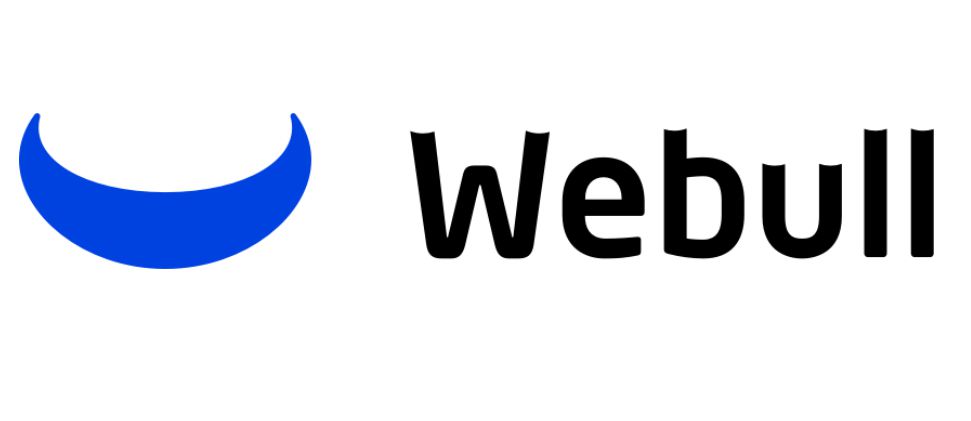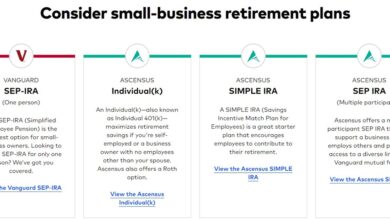5 Best Robinhood Brokerage App Alternatives

This isn’t a list of any old brokerages, we looked at brokerages that are true alternatives to Robinhood:
- They must offer free trades
- No account maintenance fees
- Preferably a nice little sign-on bonus
- Did not restrict the trading of any stocks (before being required to by their clearinghouse)
Here are the best Robinhood alternatives:
| Alternative | Best for | Learn more |
|---|---|---|
 |
Ease of use | Learn more |
| Retirement accounts | Learn more | |
| Multi-asset investing | Learn more | |
 |
Social investing | Learn more |
 |
Personalized advice | Learn more |
Webull
Best for: Ease of use
- $0 commissions on stocks and ETFs
- Fractional shares
- $5 minimum investment
- Retirement accounts available
Webull is similar to Robinhood in that it’s a brokerage that offers you free stock for signing up as well as free trades. In fact, you can get up to 20 fractional stocks. Here’s more about that promotion.
You can trade stocks, ETFs, option and futures. There are no commissions on stocks or ETFs, and Webull supports fractional shares. You can get started for just $5.
The cash management account earns 3.75% APY, so you’ll earn a strong rate on your uninvested cash.
For research, it offers fundamental analysis, real-time insights, professional analysis, and news surrounding economic events, such as earnings calls.
Webull also offers paper trading, so you can practice investing without risking real money.
Pros
- No commissions on stocks or ETFS
- Fractional shares
- Low minimum requirement
- Paper trading
Here’s our full Webull review for more information.
Cons
- No mutual funds
- No crypto
- Limited bonds
SoFi Invest®
Best for: Retirement accounts
- $0 commissions for stocks, ETFs, or options
- Fractional shares
- $5 minimum investment
- Retirement accounts available
SoFi Invest is the brokerage arm of the well-known fintech darling SoFi®, whose core offering started with student loan refinancing. In offering banking services, SoFi now has SoFi Invest – a no-commission brokerage service with no minimums and no account fees.
You can trade stocks, ETFs, options, and trade on margin. It will even give you access to IPOs. It doesn’t offer a cash management account, but you can pair it with SoFi’s high-yield savings and earn up to 3.80% APY (unlocked with direct deposit of at least $5,000+ every 30 days, otherwise 1.00% APY).
If you have an IRA with SoFi, it will match 1% of your contributions. You must roll over at least $250,000 to qualify for the match.
SoFi also offers a robo-advisor for those who don’t want to choose their own investments.
Best of all? They will give you $50 if you sign up through a referral link and deposit at least $1,000. There are no trading requirements to get this bonus.
Pros
- No commissions on stocks, options, or ETFs
- 1% match on IRA contributions
- IPO access
- Fractional shares
- $5 minimum investment
Cons
- Must have direct deposit with SoFi to earn a high rate on uninvested cash
- No crypto
Here’s our full Sofi Invest review for more information.
Public
Best for: Multi-asset investing
- $0 commissions on stocks, ETF, and option trades
- High yield cash management account
- Fractional shares
- $5 minimum investment
- Retirement account available
Public offers free stock trades and actually gives you a rebate on option trades — meaning you get paid to invest in options. It has a wide variety of assets to choose from, including stocks, bonds, ETFs, options, and treasuries.
If you are a Premium user, you can set up “investment plans” which allow you to automate your strategy. This is great for those who want to dollar cost average their investments. You can set up your portfolio and then simply contribute to your plan. You can select premade plans or make your own.
The cash management account earns 4.10% APY, so you’ll be earning a good rate while you research your next investment.
Pros
- No commissions on stocks, options, or ETFs
- Rebate on option trading
- High rate on the cash management account
- Wide variety of assets to choose from
Cons
- No mutual funds
- Limited research tools
Here’s our full Public review for more information.
eToro
Best for: Social investing
- $0 commissions on stocks and ETFs
- $50 minimum first time deposit
- Fractional shares
- Social features allow you to copy trades of other users
- Paper trading
eToro’s special feature is it’s social aspect. With the Copy Trader feature, you can copy top performing member’s portfolio and trade like a pro, even as a beginner. Also, to help you learn, it offers paper trading. This allows you try out trades without risking real money.
You’ll need to deposit $50 when you open the account and each trade must be a minimum of $10.
You can invest in stocks, ETFs, crypto, and options. eToro is not available in NY, NV, HI, Puerto Rico and US Virgin Islands.
Pros
- No commissions on stocks or ETFs
- Fractional shares
- Copy Trader feature
- Paper trading available
Here’s our full eToro review for more information.
Cons
- No crypto-to-crypto trades
- Required $50 deposit
- $10 minimum trades
Ally Invest
Best for: Personalized advice
- $0 commissions on most U.S. securities
- No account minimum
- No fractional shares
Ally Invest offers free trades, no minimums, no account fees, and they pair nicely with Ally Bank – an online bank that offers a full suite of banking products and higher yields than a traditional brick and mortar bank.
It offers self directed trading and a robo advisor. Plus, if you have over $100,000 with Ally Invest, you can get personalized advice from a dedicated advisor for 0.85% of your invested assets.
There’s not a direct cash management account, but the investment account pairs nicely with Ally’s high-yield savings account, which currently earns 3.70% APY. So you’ll still be earning, even when you aren’t invested.
If you are doing a full account transfer (ACAT), they will reimburse up to $75 in transfer fees.
Pros
- Integrates easily with Ally bank
- No commissions on most trades
- Low cost options
- Offers mutual funds
Here’s our full Ally Invest review for more information.
Cons
- No fractional shares
- Limited research tools
What to Look for When Choosing an Investment App
Fees: Before getting started, you’ll want to understand what fees are associated with the app. Fees can take a big bite out of your earnings, so you’ll want to keep them as low as possible. All the apps on this list have free trades, but there may be other fees if you want to trade options or trade on margin.
Types of investments offered: No every app offers every type of investment. If you are interested in trading alternative investments then you’ll need an app that supports that. If you just want to trade stocks, you’ll be ok on any investment app.
Account minimums: Some investing apps have high minimums. If you are just getting started, you’ll want an app that will allow you to start small.
Tools: If you want to research investments right in the app, then you’ll want to look into the tools it offers and make sure they will meet your needs. Some apps offer a community to learn from as well as research tools.
What is the Best Investing App for Beginners?
Webull offers an easy-to-use interface and paper trading. Paper trading allows you to use a practice portfolio so you can see how real investments would perform without having to risk real money.
Webull offers advanced research tools that may be overwhelming for new users, but there is a community of traders you can plug into for help. You can learn from other traders and ask questions as they come up.
Another great platform for beginners is eToro. eToro let’s you follow experienced traders and copy their portfolio and trades, allowing you tap into their expertise while you are learning.
Final Thoughts
Choosing an investment app can be difficult. Key factors to consider are fees, investment options, account minimums, and available research tools.
Each app on this list caters to different investor needs. Webull stands out for its ease of use, offering fractional shares, and paper trading. SoFi Invest is ideal for retirement accounts, offering a 1% IRA contribution match. Public allows multi-asset investing with high-yield cash management, while eToro features social investing, letting users copy the trades of experienced investors. Ally Invest provides free trades and access to a robo-advisor, with personalized advice available for high-net-worth clients.
Other Posts You May Enjoy:
How to Prepare for a Recession
If you’re worried about a recession, there are some things you can do to prepare so that you feel like you’re in more control of your finances. If it happens, you’ll be ready. If it doesn’t, you’ll have extra money to put towards your goals.
Airlines Status Matching to Southwest Airlines
Several airlines have announced status matching programs to court Southwest passengers. See how to get your Southwest status matched at American Airlines, Delta, United and Frontier.
529 to Roth IRA Conversion: An Early Retirement Hack
The SECURE Act 2.0 gave 529 plan holders a way to rollover up to $35,000 in funds to a Roth IRA – it’s a convenient release valve for education savers and here’s how it works.
It’s never too late
It’s easy to think that you’re late. Whether it’s with investing, your career, your business, or whatever your main endeavor is, you might feel behind. But the reality is that success can occur at any moment, whether you’re 20 or 40 or 60. It’s best to start now, whatever age you are.

About Jim Wang
Jim Wang is a forty-something father of four who is a frequent contributor to Forbes and Vanguard’s Blog. He has also been fortunate to have appeared in the New York Times, Baltimore Sun, Entrepreneur, and Marketplace Money.
Jim has a B.S. in Computer Science and Economics from Carnegie Mellon University, an M.S. in Information Technology – Software Engineering from Carnegie Mellon University, as well as a Masters in Business Administration from Johns Hopkins University. His approach to personal finance is that of an engineer, breaking down complex subjects into bite-sized easily understood concepts that you can use in your daily life.
One of his favorite tools (here’s my treasure chest of tools, everything I use) is Empower Personal Dashboard, which enables him to manage his finances in just 15-minutes each month. They also offer financial planning, such as a Retirement Planning Tool that can tell you if you’re on track to retire when you want. It’s free.
Opinions expressed here are the author’s alone, not those of any bank or financial institution. This content has not been reviewed, approved or otherwise endorsed by any of these entities.




